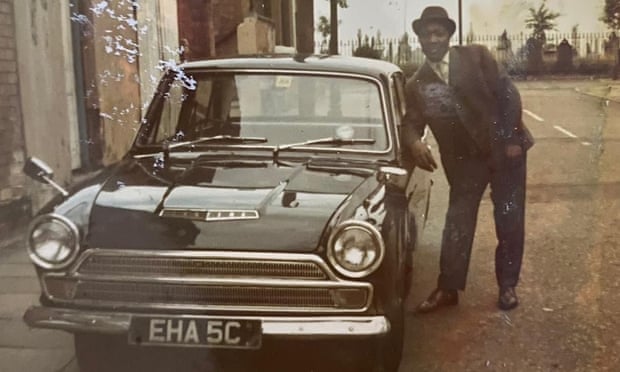Pardner Hand: A Caribbean answer
to British banking exclusion

Free, no need to book ahead.
Our free exhibition in collaboration with the Bank of England Museum explores the financial discrimination faced by members of the Windrush Generation and how they fought back with a community savings and loans scheme known as the Pardner Hand. The exhibition opened at the Bank of England in the City of London on Windrush Day, 22 June 2023 and has been extended to 20 December 2024.
What to expect
Curated by Museumand, the exhibition tells the stories of the Windrush Generation – the pioneering men and women who came to the UK from 1948 onwards, after being invited by the British Government to help rebuild the country after World War Two. Many were denied access to high street banking services including bank accounts and mortgages, making it hard to save money or buy a house.
The resourceful and resilient Windrush Generation turned to the Pardner Hand, a centuries-old scheme originating in Africa that had been taken to the Caribbean by enslaved Africans during the Transatlantic Slave Trade. The Pardner Hand enabled many Caribbeans to save, take out loans and buy property – and is still used widely today to save for big ticket items such as holidays or home appliances.

The Pardner Hand enables people to save as a group, with everyone putting in a set amount of money at a regular interval, such as £20 each week. Each person, or ‘pardner’, taking it in turns to receive the pot, or ‘hand’ of money. One person is appointed as a ‘banker’ to hold the pot until it’s ready to give out.
Here’s what the Windrush Generation and their descendants say…
“Handing the pardner money over is an art. You slip it from your palm to the banker, or you put it in an envelope and hand that over. You don’t make a song and dance of it!” E.W (Nottingham)
“It’s a great system to be a part of. If you can get first and last han’ on the list then that’s good because you get double the money quickly. The downside is you then have to wait a long time before you get your next han’.” (M.G Birmingham)
“I was introduced to the Pardner not through family but a friend in the 1970s. She worked on the buses and a group there had a Pardner Han’. At times when I was planning to buy something special I would have two hands! It’s a great discipline.” (C.D Watford)
“Our pardner included four generations of our family, my gran, my mum, me and my daughter. When my mum went ‘home’ one of my siblings took over and ran the pardner.” (J.C London)
“As a young boy, I remember my mother used to give me the money to take to the Pardner Han’ lady. I remember running all the way to the lady’s house and handing it over. It was years later I realised the responsibility she gave me. When it mum’s turn to get the money, she just said, go to the lady and she will give you something for me! Her trust in me made me feel really grown up.” (C.R Nottingham)